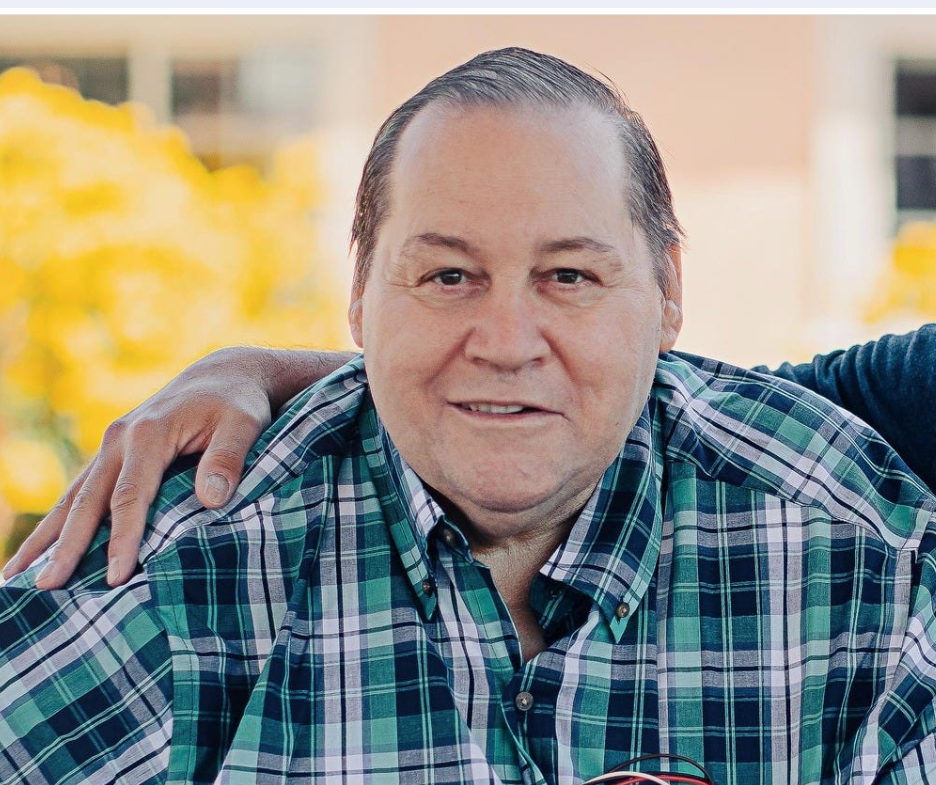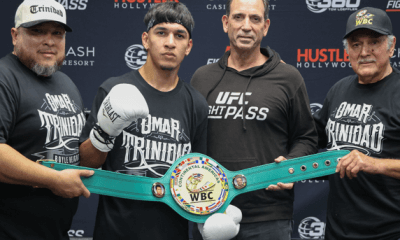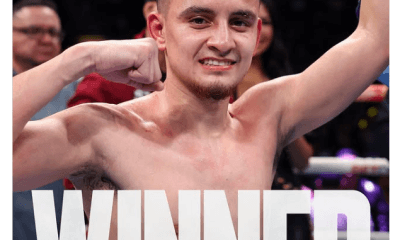Featured Articles
Boxing Loses Another Vibrant Personality with the Passing of Cameron Dunkin

“Using a hands-on, almost fatherly approach, [Cameron] Dunkin built a roster of professional boxers who rely on him for guidance as well as financial and moral support. He’s a new-wave manager with old-school values.”
Former Las Vegas Sun boxing writer Dean Juipe wrote those words in August of 2002. At this juncture, Dunkin had been involved with 14 world title-holders, a number that would eventually grow to more than 30. A short list would include Danny Romero, Johnny Tapia, Bones Adams, Diego Corrales, Kelly Pavlik, Mikey Garcia, Timothy Bradley, Jessie Vargas, Nonito Donaire, and Terence Crawford. Named the 2007 Boxing Manager of the Year by the Boxing Writers Association of America, Dunkin passed away on Tuesday (Jan. 2) at age 67 in Las Vegas after a long battle with pancreatic cancer.
A Southern California native, Dunkin started dabbling in boxing while working as a car finance manager in Phoenix, Arizona. His big move, in hindsight, came in 1992 when he latched hold of Danny Romero. The contract was signed on Romero’s 18th birthday.
Romero packed a big punch, but had two strikes against him. He had come up short in his biggest amateur fights and casual fight fans paid scant heed to his weight class. In his fighting togs, he weighed 115 pounds. A point in his favor is that he hailed from Albuquerque, a very good fight town. Albuquerque was like Los Angeles at mid-century. With no major league professional sports teams, boxing got a big play in the local papers and the natives turned out in droves when one of their own gave promise of becoming a world champion.
Romero went on to win a world title and secured a big payday when he met intra-city rival Johnny Tapia on HBO in July of 1997. There was bad blood between them which prevented the fight from being held in Albuquerque. The biggest indoor and outdoor stadiums were owned by the University of New Mexico and school fathers feared that the bloodshed wouldn’t be confined to the ring. The “Battle of Albuquerque” landed in Las Vegas, Nevada, where the charismatic Tapia, in a mild upset, out-pointed Romero before a boisterous but well-behaved crowd.
By then, the relationship with Danny Romero and Cameron Dunkin had ruptured and Dunkin had had a cup of coffee with Johnny Tapia. In the Machiavellian sport of boxing, shifting alliances are fairly common. Facilitators follow the money and the money is often in the opposite corner of where they first started.
In the ensuing years, Dunkin’s relationship with many of his fighters took the same turn as his relationship with Danny Romero. He built Diego “Chico” Corrales up from scratch only to lose him when Corrales stood on the precipice of his richest payday, a match with fellow unbeaten Floyd Mayweather Jr. Several weeks before the bout, Corrales fired Dunkin, alleging breach of contract and sending the rift to arbitration. Dunkin wasn’t Timothy Bradley’s first manager, but it was Dunkin who hooked up Bradley with Top Rank which led to his lucrative three-fight series with Manny Pacquiao. However, Dunkin didn’t get to share in the swag in the second and third fights in the trilogy. As soon as Dunkin’s contract expired, Bradley cut him loose.
Where Cameron Dunkin really excelled was as a talent scout. Even his enemies (and there were many) conceded that no one ever had a better eye for spotting a diamond-in-the-rough. Dunkin attended a ton of amateur tournaments where he networked with young boxers and their parents. He couldn’t afford to pay the bonus that an Olympian would command so he concentrated on those a notch below in the pecking order, many of whom went on to have a more noteworthy pro career than the opponent that dashed their Olympic dreams.
Dunkin worked extensively with Top Rank. In January of 2008, a news story about him noted that 12 of the 17 boxers that he managed were affiliated with Bob Arum’s organization. Prominent among them was Youngstown, Ohio middleweight Kelly Pavlik. In September of the previous year, Pavlik acquired two pieces of the world middleweight title with a dramatic, come-from-behind TKO over Jermain Taylor at Boardwalk Hall in Atlantic City. Among his many highlights, that may have been Dunkin’s finest hour.
Dunkin wasn’t flamboyant. He was content to stay in the background. However, he had a garrulous side that surfaced in private conversations with reporters. “Words flow out of his mouth like an avalanche,” wrote Albuquerque Journal sportswriter Richard Stevens.
Needless to say, not all of Dunkin’s investments panned out. Few boxers got Dunkin’s juices flowing like Philadelphia junior middleweight Anthony Thompson who turned pro in 2002 after representing the U.S. in the Goodwill Games. “He’s not only a future world champion,” said Dunkin,” he’s a pound-for-pound type of guy…he’ll be one of the best three or four fighters in the world in a few years.”
Thompson left the sport with a record of 24-3 owing Dunkin money advanced to him for a fight that never materialized. But Dunkin’s connection with Thompson paid dividends. Thompson was trained and co-managed by Derek “Bozy” Ennis, the father of rising welterweight star Jaron “Boots” Ennis. When the elder Ennis thought that the time was right to have his son turn pro, he turned to Cameron Dunkin, spurning suitors with deeper pockets. ”[Cameron] took care of his fighters,” said Bozy in a conversation with Boxing Scene’s Keith Idec. “I had nothing but respect for him…”
Many others echoed Bozy’s sentiments on social media when they learned of Dunkin’s passing. Even some boxers who ditched Dunkin for greener pastures were florid in their appreciation of him. One of the nicer encomiums came from sportscaster Crystina Poncher, the anchor of the international feed for Top Rank Boxing on ESPN. “Sad to hear of the passing of boxing manager Cameron Dunkin,” she wrote on “x,” formerly twitter. “He was so kind to me, believed in me early on, and helped me gain a great rapport with the fighters I covered for TR….”
May he rest in peace.
—-
Arne K. Lang is a recognized authority on the history of prizefighting and the history of American sports gambling. His latest book, titled Clash of the Little Giants: George Dixon, Terry McGovern, and the Culture of Boxing in America, 1890-1910, was released by McFarland in September, 2022.
To comment on this story in the Fight Forum CLICK HERE
-

 Featured Articles3 weeks ago
Featured Articles3 weeks agoThe Hauser Report: Zayas-Garcia, Pacquiao, Usyk, and the NYSAC
-

 Featured Articles2 weeks ago
Featured Articles2 weeks agoOscar Duarte and Regis Prograis Prevail on an Action-Packed Fight Card in Chicago
-

 Featured Articles1 week ago
Featured Articles1 week agoThe Hauser Report: Cinematic and Literary Notes
-

 Book Review3 days ago
Book Review3 days agoMark Kriegel’s New Book About Mike Tyson is a Must-Read
-

 Featured Articles4 weeks ago
Featured Articles4 weeks agoManny Pacquiao and Mario Barrios Fight to a Draw; Fundora stops Tim Tszyu
-

 Featured Articles3 weeks ago
Featured Articles3 weeks agoArne’s Almanac: Pacquiao-Barrios Redux
-

 Featured Articles2 weeks ago
Featured Articles2 weeks agoRemembering Dwight Muhammad Qawi (1953-2025) and his Triumphant Return to Prison
-

 Featured Articles4 weeks ago
Featured Articles4 weeks agoOleksandr Usyk Continues to Amaze; KOs Daniel Dubois in 5 One-Sided Rounds


















